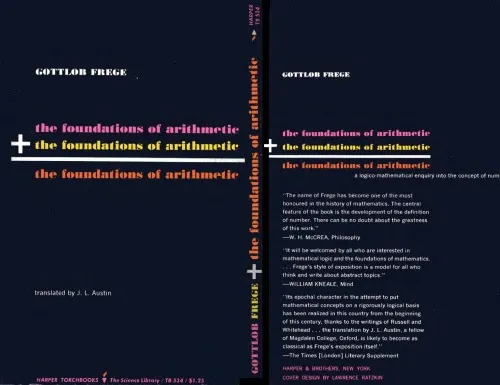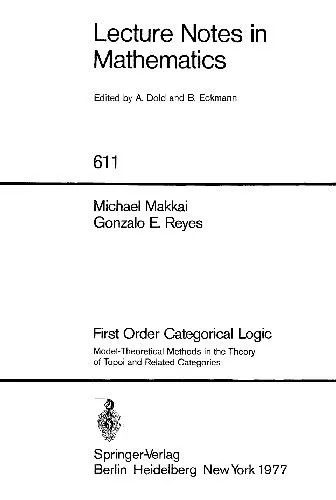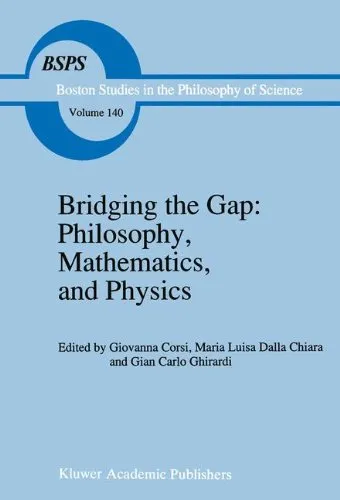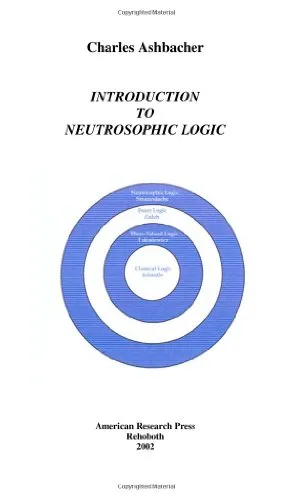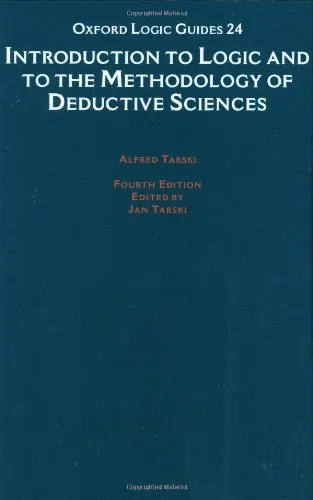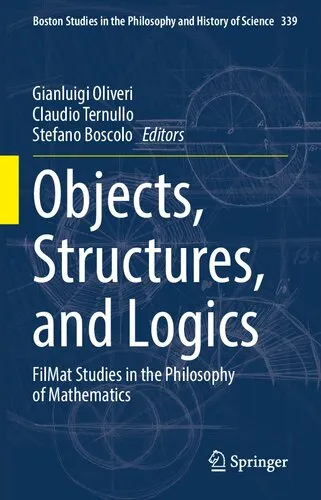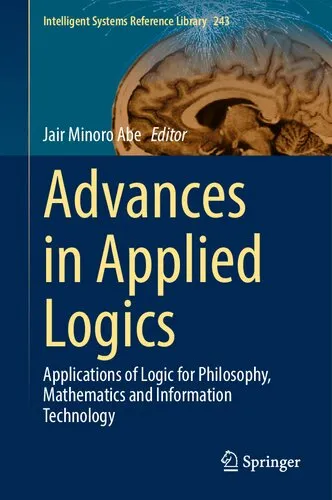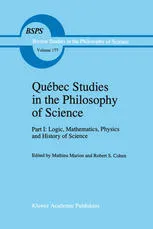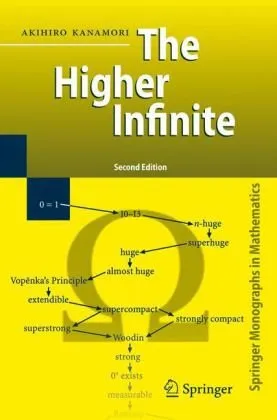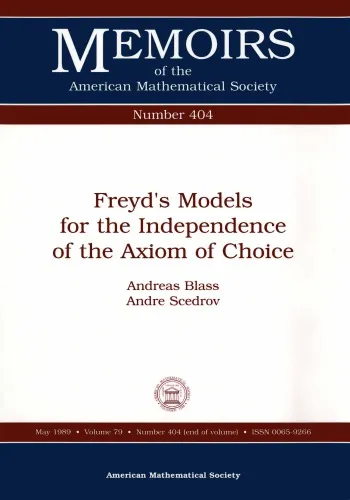The foundations of arithmetic;: A logico-mathematical enquiry into the concept of number
4.7
Reviews from our users

You Can Ask your questions from this book's AI after Login
Each download or ask from book AI costs 2 points. To earn more free points, please visit the Points Guide Page and complete some valuable actions.Related Refrences:
Introduction to 'The Foundations of Arithmetic'
"The Foundations of Arithmetic" is a seminal work by Gottlob Frege, addressing the philosophical underpinnings of arithmetic in a rigorous logico-mathematical manner. This insightful book delves into the very concept of number, exploring its essence and structure from both a philosophical and mathematical perspective. With a dedication to exactness and clarity, Frege approaches arithmetic not merely as a branch of mathematics but as a fundamental element deeply intertwined with logic.
Detailed Summary of the Book
Frege embarks on his enquiry into arithmetic by first dismantling traditional forms of number definition which, in his view, lack the necessary precision and philosophical grounding. His work is foundational in presenting the argument that numbers are not mere abstractions or psychological constructs but are independent logical entities. Frege’s narrative progresses from critiquing preceding mathematical definitions to proposing his own framework, where he meticulously defines numbers as extensions of concepts.
Throughout the book, Frege emphasizes the importance of rigorous logical analysis in understanding numbers, placing logical principles above empirical and psychological approaches. He challenges the prevailing notion that arithmetic is grounded in observable phenomena or intuitive ideas by instead submitting it to logical principles, thus laying the groundwork for what would later become a key component of analytic philosophy.
Frege introduces the concept of a 'cardinal number', defining it through bi-conditional logical equivalence and highlighting its role as a fundamental component of arithmetic. He also tackles the concept of zero and the notion of succession, illustrating their logical properties and significance. Moreover, he elaborates on his function and argument analysis, a methodological cornerstone of his philosophical framework.
Key Takeaways
- Frege defines numbers as logical objects, separate from subjective experience.
- He emphasizes the necessity of logical rigor in the philosophical foundations of mathematics.
- The book lays the groundwork for future analytic philosophy and mathematical logic.
- Frege critiques and builds upon prior mathematical and philosophical ideas concerning the concept of number.
Famous Quotes from the Book
"Number is something objective."
"A statement of number expresses a property of a concept."
Why This Book Matters
"The Foundations of Arithmetic" remains a pivotal text for anyone interested in the philosophy of mathematics, logic, and the analytical tradition. Frege’s work deeply influences subsequent thinkers and sets the stage for the development of mathematical philosophy as an academic discipline.
By providing a logical analysis of numbers, Frege not only challenges the prevailing mathematical thought of his time but also revolutionizes the way in which philosophical inquiry approaches abstract concepts. His work is fundamental in the transition from traditional to modern logic, influencing philosophers and logicians such as Bertrand Russell and Ludwig Wittgenstein.
The book’s emphasis on precision and scientific clarity continues to resonate, providing insightful methodologies applicable not only in mathematics and philosophy but also in various cognitive sciences. As such, "The Foundations of Arithmetic" is not merely a historical document but a continuously relevant text that speaks to the ongoing quest to understand the nature of numbers and logic.
Free Direct Download
You Can Download this book after Login
Accessing books through legal platforms and public libraries not only supports the rights of authors and publishers but also contributes to the sustainability of reading culture. Before downloading, please take a moment to consider these options.
Find this book on other platforms:
WorldCat helps you find books in libraries worldwide.
See ratings, reviews, and discussions on Goodreads.
Find and buy rare or used books on AbeBooks.
1375
بازدید4.7
امتیاز0
نظر98%
رضایتReviews:
4.7
Based on 0 users review
Questions & Answers
Ask questions about this book or help others by answering
No questions yet. Be the first to ask!
